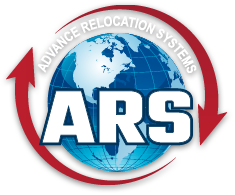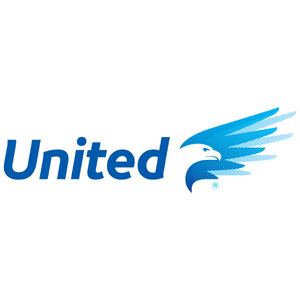Top-rated movers to make your Baltimore to Minneapolis move easy
Finding a trusted local moving company in Baltimore that offers long-distance services to Minneapolis can be a challenge. Good news — we’ve done the homework for you. Our team reviewed 58 top local movers in Baltimore who handle long-distance moves, evaluating them based on pricing, service offerings, and customer satisfaction.
These are the best local movers for your long-distance move from Baltimore to Minneapolis.
- Advance Relocation Systems: 4.64 out of 5 stars
- Bellhop Moving: 4.5 out of 5 stars
- Von Paris Moving & Storage: 4.64 out of 5 stars
- Orly Moving Systems, Inc.: 4.5 out of 5 stars
- All My Sons Moving & Storage: 4.42 out of 5 stars
Company Info
State license #: 125550
Years in Business: 59
DOT #: 125550
Alternate Names: Advance Storage Movers , Advance Corporation , Advance Movers
Services Offered
- Local moves
- Interstate moves
- International moves
- Packing
- Unpacking
- Offices
- Pianos
- Art
- Antiques
- Crating
- Shipment tracking
- Full-valuation coverage
- Storage
- Pay by cash
- Pay by credit card
- DOD certified
Company Info
State license #: 2878240
Years in Business: 13
DOT #: 2878240
Alternate Names: Bellhops Moving Services
Services Offered
- Local moves
- Interstate moves
- Packing
- Unpacking
- Storage
- Pay by credit card
- Deposit Required
Company Info
Years in Business: 133
DOT #: 070851
Alternate Names: Von Paris Moving & Storage, Inc. , Von Paris Moving & Storage , B Von Paris Moving & Storage , Commercial Relocation Systems , CRS
Services Offered
- Local moves
- Interstate moves
- International moves
- Packing
- Unpacking
- Offices
- Pianos
- Hot Tubs
- Pool Tables
- Art
- Antiques
- Grandfather clocks
- Crating
- Shipment tracking
- Storage
- Fragile-only packing
- Pay by cash
- Pay by credit card
Company Info
Years in Business: 32
Services Offered
- Local moves
- Interstate moves
- International moves
- Packing
- Unpacking
- Offices
- Pianos
- Pool Tables
- Art
- Antiques
- Crating
- Storage
- Pay by money order
- Pay by cash
Company Info
Years in Business: 26
DOT #: 902281
Services Offered
- Local moves
- Interstate moves
- International moves
- Packing
- Unpacking
- Offices
- Pianos
- Antiques
- Crating
- Storage
- Safes
- Pay by credit card
- Deposit Required
How much does it cost to move from Baltimore to Minneapolis?
In Maryland, moving services typically cost around $125 per hour. Below are standard prices for hiring a full-service moving company, renting a moving container, or a truck:
| Move size | Moving company | Moving container | Rental truck |
|---|---|---|---|
| Studio / 1 bedroom | $1,116 – $4,218 | $818 – $2,078 | $698 – $1,225 |
| 2 – 3 bedrooms | $2,269 – $5,381 | $1,555 – $2,959 | $711 – $1,471 |
| 4+ bedrooms | $3,674 – $7,460 | $2,061 – $4,102 | $958 – $1,866 |
Cost to hire movers from Baltimore to Minneapolis
If you’re packing up a studio or one-bedroom to move to Minneapolis from Baltimore, you can expect prices to land between $1,116 and $4,218. For a two- or three-bedroom space, your costs will usually range from $2,269 to $5,381 for the trip from Baltimore to Minneapolis. If you’re moving a large four- or five-bedroom home, you’re likely looking at a price tag between $3,674 and $7,460.
Cost of moving containers from Baltimore to Minneapolis
Moving containers from Baltimore to Minneapolis will cost you $818 to $2,078 for a small move. For a two- to three-bedroom move, moving containers can cost $1,555 to $2,959. A four-bedroom move or bigger will cost $2,061 to $4,102. Learn more about PODS cost.
Here are the cheapest moving container companies when moving out of Maryland.
Cost of moving truck rentals from Baltimore to Minneapolis
Renting a moving truck from Baltimore to Minneapolis typically costs the least, but you’ll be responsible for both the heavy lifting and all the driving.
Expect to pay between $698 and $1,225 to move a studio or one-bedroom apartment with a rental truck. For a two- or three-bedroom move, prices usually range from $711 to $1,471. If you’re relocating a four-bedroom (or larger) home, you’ll likely spend anywhere from $958 to $1,866.
These estimates factor in the average cost of fuel.
Key factors that impact the cost of your Baltimore to Minneapolis move
The cost of Baltimore movers will depend on:
- Home size: The number of rooms makes a big difference. Expect around $2,007 for a one-bedroom, or up to $6,518 for a four-bedroom.
- The time of year you’re moving: Rates climb in summer because of peak season demand in Baltimore.
- DIY vs. professional: Rental trucks can range from $698 to $1,657, but require more effort than hiring movers.
What to know before moving from Baltimore to Minneapolis
Expect a bump in monthly expenses after the move – Minneapolis runs about 75% higher for singles and -7% higher for families than Baltimore.
Singles spend around $3,900 in Baltimore versus $2,223 in Baltimore; families pay $4,710 compared with $5,088.
Dig into the side-by-side details here:
| Baltimore | Minneapolis | |
|---|---|---|
| Average 1 BR rent | $1,892 | $1,688 |
| Average 3 BR rent | $3,333 | $2,707 |
| Average home value | $180,790 | $312,602 |
| Average income (per capita) | $58,349 | $70,099 |
| Cost of living (single) | $2,223 | $3,900 |
| Cost of living (family of four) | $5,088 | $4,710 |
| Unemployment rate | 7.9% | 4.5% |
| Sales tax | 6.0% | 9.03% |
| State income tax | 5.75% | 9.85% |
- When relocating from Baltimore to Minneapolis, expect to find rent about 7% cheaper, letting you enjoy more financial freedom monthly.
- Anticipate a larger mortgage expense since home prices in Minneapolis are about 73% higher than those in Baltimore.
- Exciting update: you’ll see an average income that’s about 20% higher in Minneapolis compared to Baltimore, which might allow for more savings or investments.
- Prepare your budget for higher expenses in Minneapolis, as living costs for a single person are 75% higher than in Baltimore. This includes essential costs such as utilities, groceries, clothing, and commuting.
- A move to Minneapolis can help cut down on a family’s routine expenses, including utilities, transportation, and groceries. The cost of living for a family of four is 7% less than what it costs in Baltimore.
- The unemployment rate in Minneapolis is about 43% lower than in Baltimore. This is often a positive indicator of a robust job market and economic health, beneficial if you plan to move there.
- Sales taxes in Minneapolis are 50% more than in Baltimore, implying increased costs for common purchases like apparel, dining, and gadgets.
- Income taxes in Minnesota are 71% above those in Maryland. Consequently, more of your income may be allocated to tax payments, which could diminish your overall earnings.
See how the cost of everyday necessities and regular monthly payments differs between Baltimore and Minneapolis:
| Living Expense | Baltimore | Minneapolis |
|---|---|---|
| Basic utilities | $181.61 | $164.65 |
| Cell phone plan | $56.81 | $50.68 |
| Dozen eggs | $4.34 | $4.15 |
| Loaf of bread | $3.91 | $3.75 |
| Fast-food/casual eatery (one meal) | $20.00 | $18.00 |
| Dinner for 2 (mid-range restaurant) | $80.00 | $75.00 |
| Gym membership | $57.63 | $55.00 |
- Basic utilities tend to be more expensive in Baltimore than in Minneapolis.
- Cell phone plans typically cost more in Baltimore than in Minneapolis.
- Eggs cost more in Baltimore than in Minneapolis.
- Bread is more expensive in Baltimore than in Minneapolis.
- A quick meal tends to cost more in Baltimore than in Minneapolis.
- A mid-range dinner for two is pricier in Baltimore than in Minneapolis.
- Gym memberships cost more in Baltimore than in Minneapolis.
How life is different in Baltimore vs. Minneapolis
| Baltimore | Minneapolis | |
|---|---|---|
| Population | 585,708 | 425,115 |
| Transportation score | 8 | 8 |
| Walkability score | 64 | 71 |
| Bike friendliness score | 53 | 83 |
| Crime index | 72.72 | 56.06 |
| Safety index | 27.28 | 43.94 |
| Air quality | Good | Good |
- Minneapolis’s population is about 27% less than Baltimore.
- Minneapolis’s public transportation score is within about 5% of Baltimore, making them very similar.
- Minneapolis is more walkable than Baltimore with a score of 71 out of 100 vs Baltimore’s 64 out of 100.
- With a score of 83 out of 100, Minneapolis is more bike-friendly than Baltimore, which has a score of 53 out of 100. The higher a city’s score, the more suited it is to safely accommodating cyclists.
- Minneapolis’s crime rate is lower than Baltimore with a score of 56.06 compared to Baltimore’s 72.72. This means that Minneapolis neighborhoods are safer than 56.06% of all U.S. neighborhoods, and Baltimore neighborhoods are safer than 72.72%.
- Minneapolis is considered to be safer than Baltimore with a safety index of 43.94 vs Baltimore’s 27.28.
- Air quality in Minneapolis is Good, and in Baltimore it’s Good.
Other things to consider for your Baltimore to Minneapolis move
- HOA rules: Check ahead with any neighborhood or community rules on moving to ensure a smooth move.
- Elevator reservation: If your building has an elevator, make sure to find out how to reserve it ahead of your move.
- Truck parking permits: Make sure to look into local parking regulations—some areas require permits for large moving trucks.
- State licensing: To operate legally within the state, Minnesota household goods movers must have a current permit from the Minnesota Department of Transportation (MnDOT). Before being granted operating authority, each moving company must file a public tariff, provide proof of insurance and submit a Certificate of Compliance to MnDOT. Before booking, ensure the moving company is officially licensed to handle your move.
- State regulator: Minnesota’s public utilities commission provides official mover license verification.
- Moving Permits: Minnesota does not require any moving permits, but it is helpful to check local parking restrictions before moving into the state. We recommend submitting your change of address form with USPS at least a week prior to your move.
- Change of address: We suggest filing your USPS change of address form at least one week before your move. You’ll be able to set your official move date, helping ensure your mail is forwarded correctly to Minneapolis. Start the process here.
- Moving company insurance: The amount and type of insurance movers must have depends on state regulations. In Minnesota, opt for the budget-friendly Released Value Protection provided by movers at no extra charge. While economical, it offers minimal coverage at 60 cents per pound per article. For full value coverage of your items, consult with your chosen moving company for alternatives or consider a third-party insurance provider.
- Moving checklist: Our moving checklist gives you the peace of mind that comes with being fully prepared.
Where to live in Minneapolis
Planning your move to City of Lakes? Take a look at our picks for the best neighborhoods to call home in Minneapolis.
Best neighborhoods for singles
- Linden Hills
- Loring Park
- Northeast Minneapolis
- North Loop (Warehouse District)
- Uptown
- Whittier
Best neighborhoods for families
- Diamond Lake
- Fulton
- Kenny
- Linden Hills
- Minnehaha
Things to do in Minneapolis
After settling into your new Minnesota home, you’ll want to branch out and explore your new city. Luckily, Minneapolis has lots to offer, no matter what you’re interested in:
- Arts and culture: Minneapolis features a variety of museums and cultural arts centers, including the Minneapolis Institute of Art, Mill City Museum, American Swedish Institute, and The Museum of Russian Art.
- Outdoor recreation: The city’s Minnehaha Park, Mill Ruins Park, Loring Park, and Gold Medal Park — along with other locations — ideal for trails, cycling, or enjoying the fresh air.
- Sports: Nothing beats the thrill of cheering on the home team at an Minnesota Lynx (WNBA)Minnesota Timberwolves (NBA)Minnesota Twins (MLB)Minnesota Vikings (NFL) game.
FAQ
When is the best time to move from Baltimore to Minneapolis?
Planning your move from Baltimore to Minneapolis? Aim for spring or fall when the weather is pleasant and demand is lower, helping you avoid peak-season rates in Baltimore.
When is the cheapest time to move from Baltimore to Minneapolis?
Because most people are moving from Baltimore to Minneapolis in the spring or fall, you can often catch discounts by moving in the winter. Read our guide on moving discounts to learn more.
How long does a move from Baltimore to Minneapolis take?
The 1,118-mile journey from Baltimore, MD to Minneapolis, , typically takes two to eight days. Some movers in Baltimore offer expedited services if you’re on a tight schedule, and if you need extra time, be sure to ask about storage options in Minneapolis.
Are there special savings available from movers in Baltimore?
Several movers here offer discounted rates that can help lower your total moving costs. 7 have discounts for military personnel. 12 extend reduced rates to seniors.
These offers can vary widely, so it’s best to verify details with the mover before booking.
Are piano and antique moving services available in Baltimore?
Not all movers have the resources to handle high-value or delicate items. In Baltimore, 42 movers can manage piano relocations. 32 movers are equipped for antique transport. By comparison, Maryland has 37 piano movers and 30 antique movers, while nationwide there are 2,299 and 1,464 respectively.
Always confirm the mover’s experience and packing methods for fragile or specialty items before booking.
Helpful moving resources
Baltimore moving services
Popular Maryland routes
- Maryland to Minnesota car shippers
- Maryland to California movers
- Maryland to Florida movers
- Maryland to Georgia movers
- Maryland to Illinois movers
- Maryland to Michigan movers
- Maryland to New York movers
- Maryland to North Carolina movers
- Maryland to Ohio movers
- Maryland to Pennsylvania movers
- Maryland to Texas movers
- See All Moving Routes
Not what you were looking for?
Check out other categories that can help you find the information you need!























